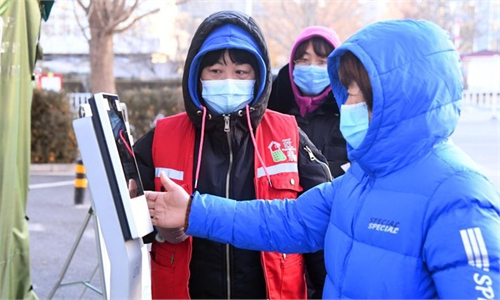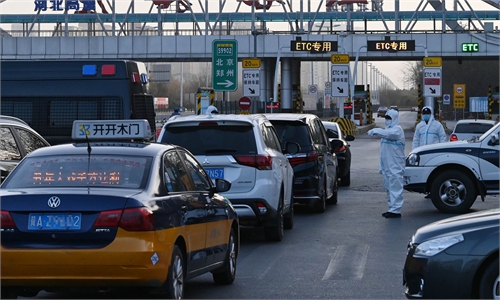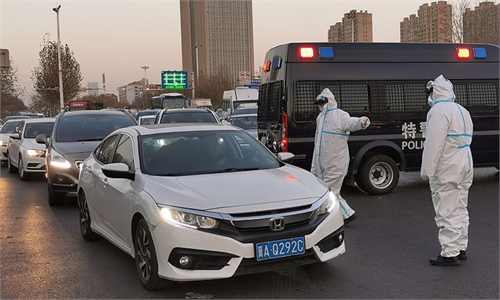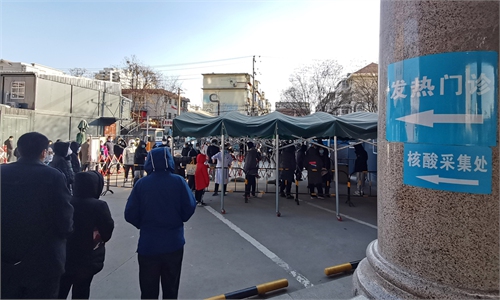Beijing raises guard against Hebei outbreak with stricter measures in transport systems, communities
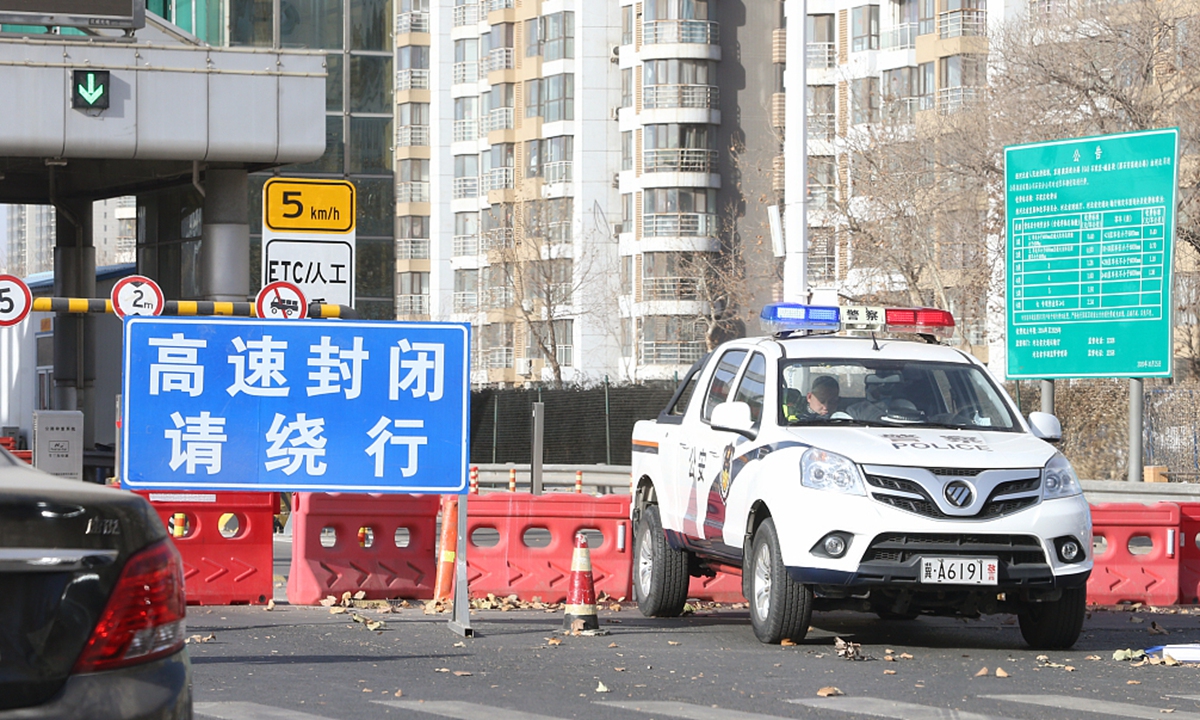
Hebei file photo: VCG
Beijing is showing determination to safeguard its safety amid recent COVID-19 outbreaks, especially a resurgence in neighboring Hebei Province. Highways, railway authorities and local communities have adopted strict measures to ensure that people entering the capital are not potential sources of a new infection surge with the 2021 Spring Festival less than six weeks away.
China's capital city is still recovering from a local resurgence in late December, which involved more than 40 infections in three districts. The sudden outbreak in neighboring North China's Hebei Province, which has seen more than 120 infections in four days, led to new tightening measures.
"We will strictly control people coming from regions of medium- and high-risk from entering Beijing, strictly implement epidemic prevention requirements on interprovincial passenger coaches and railways, and strengthen health screening for commuters," said Tian Wei, a Beijing municipal government official at a press briefing on Wednesday, following Beijing Party chief Cai Qi's Tuesday remarks that management and control of travel from neighboring Hebei should be strengthened to ensure the safety of the capital.
Cargo transportation into Beijing will be also carefully managed, with strictly inspection of vehicles, personnel and goods, as well as disinfection work, according to Tian.
Gaocheng district in Shijiazhuang, capital of Hebei Province, has become the only high-risk region in China. Medium-risk regions include some areas in Shenyang and Dalian in Northeast China's Liaoning Province.
From Wednesday to February 4, all trains from Hebei's Xingtai and Shijiazhuang to Beijing showed no tickets available. All travelers from medium- and high-risk regions in Hebei can only board with a negative nucleic acid test result obtained within 72 hours, reports said.
On Wednesday, Beijing health authorities reminded residents who have lived in or traveled to medium- and high-risk areas such as Shijiazhuang and Xingtai since December 10 to report to their communities and workplaces immediately.
An employee from the Liulihe inspection station, which is located at the Heibei-Beijing boundary on the G4 highway, told the Global Times on Wednesday that all passengers from low-risk regions now have to swipe their personal ID cards to register at the checkpoints and show certificates of a negative nucleic acid test result within three days.
"We also check passengers' information with their companies and their residential communities," the employee said.
A community staffer at the Balizhuang subdistrict in Beijing's Chaoyang district told the Global Times that people coming from Xingtai and Shijiazhuang need to register with the community in advance and then undergo home isolation.
Chaoyang district on Tuesday said it will conduct a comprehensive screening of arrivals from medium-high risk areas coming to Beijing and carefully conduct health monitoring.
"Depending on changes in the situation, it is also possible for travelers from medium- and high-risk areas in Hebei to undergo two or three more nucleic acid tests after arriving in Beijing," the community staffer said.
Beijing should tighten its grip under the current circumstances, since the number of cases in Hebei is still rising and the two regions have close interactions, a public health expert from Peking University told the Global Times on condition of anonymity.
It is possible that the virus was circulating for a while before cases were reported, and there may be infected people who have not been detected, Feng Zijian, a deputy director of Chinese CDC said.
The source of the current outbreak in Hebei is unknown, but one patient confirmed on Monday had been to Changping district of Beijing within 14 days, media reported.
Hebei announced on Wednesday that it was implementing controls on 10 highways that connect the provincial capital Shijiazhuang with Beijing, and other adjacent provinces. Some highway checkpoints are urging vehicles from both sides to return.
The long-distance bus station in Shijiazhuang announced on Wednesday it has suspended operations due to the COVID-19 flare-up.
The Global Times learned that residential communities in Shijiazhuang began to implement closed management on Wednesday morning. The city has started testing its 11 million people the same day.
Besides domestic travelers, Beijing just raised its epidemic control rules for international arrivals by extending the quarantine by seven days to 21 days for people who have entered China via other domestic ports.
It takes time to vaccinate the population, and it takes about 10 days to two weeks for immunity to take effect after the injection, experts said, noting measures that have proven successful in the past need to continue to be strengthened, along with the vaccination.
Starting on January 1, Beijing set up 220 vaccination sites throughout the city, mainly servicing groups including customs staff, inspection personnel at airports, workers who deal with imported cold-chain items, as well as people in the transportation field. Over 73,000 people had been vaccinated in the capital as of Monday.

